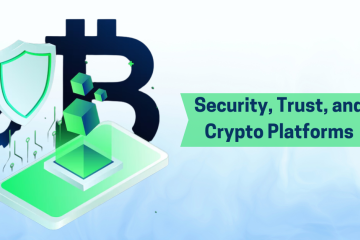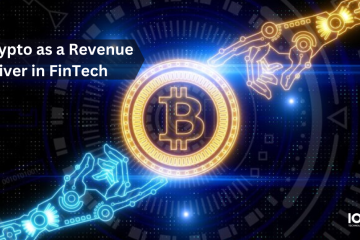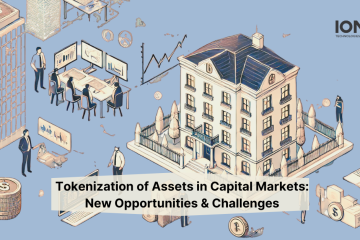Will 2019 be the year for government blockchain? Well, if speculations are to be believed, it sure looks like!
Blockchain has now begun to shed the Bitcoin/crypto image that it has long been associated with, and is holding promise for its game-changing potential across several useful applications and industries. So much so, that the US government has recognized this technology’s future in the realm of public services. Recently, U.S. Department of State has launched the Global Engagement Center’s (GEC) Technology Series to look at different technologies and solutions, including blockchain-enabled content authentication, to counter foreign propaganda and disinformation. In 2017, the Department of Homeland Security (DHS) announced a grant of $192,380 to Factom, a tech startup, to develop a use case testing the capability of blockchain in the area of data protection for Border Patrol cameras and sensors.
Not far behind, India’s tech industry association NASSCOM has been closely partnering with Canada’s Blockchain Research Institute (BRI) to explore the possibilities of blockchain in businesses, governments, and academic institutions.
The National Archives (TNA), the official record-keeper of the UK government is keen to identify possible blockchain use cases for records sharing. The Project dubbed Archangel is a government initiative to experiment with decentralized distributed ledger technology to ensure the long-term integrity of digital documents stored within public archives.
Why are countries world over staying attuned to uncover blockchain’s potential for federal initiatives?
Pretty simple. Benefits such as security, productivity, efficiency, and speed that blockchain tech brings to the table are particularly interesting for public sectors to explore and make the best use of. Leveraging blockchain for government is poised to make government working models more competent and efficient. Find out how!
Removing ‘several layers’, leading to increased trust
Government processes are often riddled with a cumbersome pen-and-paper way of carrying out basic operations. Blame it on government bureaucracy. What this has led to is quite a lot of inefficiencies on one side and a cloud of public mistrust on the other. When blockchain comes to play at this juncture, it opens out avenues for creating a trustless environment for regulatory activity and works to combat slow, expensive multi-step processes that require several intermediaries.
This perceptible shift can largely be attributed to the immutability of data that blockchain inherently possesses. This high degree of reliability and accuracy not only allows government agencies to confidently share and use the same data, but also facilitates a certain amount of automation that can drastically minimize the paperwork and bureaucratic red tape involved in government projects that go through multiple and complex layers of interagency review.
A ‘shared truth of data’, contributing to high levels of transparency
One of the core features of blockchain-based solutions is transparency through decentralization, allowing participating parties to be aware of what is happening and be able to verify data. A blockchain solution for government citizen services could facilitate independent verification of governmental claims. For instance, the governments of Sweden, Estonia, and Georgia are experimenting with blockchain-based land registries, enabling multiple parties to securely hold copies of the registry. This model could be the first step toward resolving property disputes or preventing them altogether. When citizens and governments share access to records, the potential for distrust comes down to a large extent.
Cutting down ‘time to process’, resulting in greater efficiency and speed
By eliminating some of the intermediaries in a long-drawn government process, blockchain offers governments the ability to speed up processes. For instance, take the task of tax collection. It’s typically characterized by a series of steps that goes through several intermediaries and steps. Putting all the steps on a single ledger potentially eliminates these multiple channels and creates an environment where regulators can get direct access to the transactional data, effectively reducing time to process.
So, what’s the verdict?
Any new technology is bound to go through a period of skepticism. Maybe we are at the point where we can start to see the potential but are treading a tad bit cautiously. This is the time for public sector agencies as well as enterprises in the private sector to start to experiment and figure out where the real opportunities lie, where this technology can actually solve problems in novel ways. Exciting times ahead, indeed!
As one of the early entrants into the blockchain space, Ionixx is happy to dispel the myths and break the seeming complexity surrounding blockchain tech. We are armed with a strong blockchain advisory board as well as an expert technical team to provide blockchain consultation to our customers and help you adopt blockchain into your existing business models quite seamlessly. To discuss in detail, schedule your free 15 to 30-min consultation with Ionixx now.


